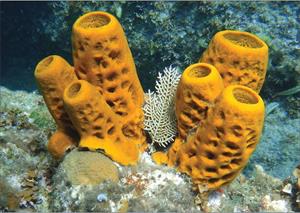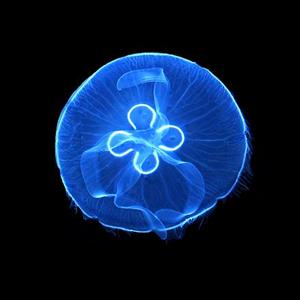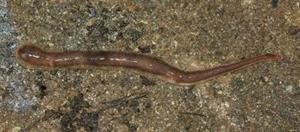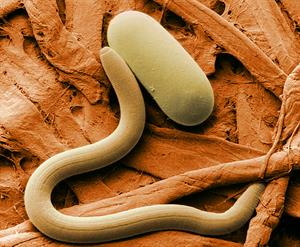
PUMPA - SMART LEARNING
எங்கள் ஆசிரியர்களுடன் 1-ஆன்-1 ஆலோசனை நேரத்தைப் பெறுங்கள். டாப்பர் ஆவதற்கு நாங்கள் பயிற்சி அளிப்போம்
Book Free DemoPhylum: Porifera
Cell structure: Multicellular

Characteristics:
- Multicellular, sponge-like, marine organisms.
- Have pores in the body called Ostia.
- Found inside the marine ecosystem.
- Water enters inside the pores and circulates in the canal like system.
- Receives food and oxygen through the water that enters the pores.
- Reproduce sexually and asexually.
Example:
Euplectella sycon. Calcarea (Calcareous sponges)
Phylum: Coelenterata
Cell structure: Multicellular
Symmetry: Radial
Germ layer: Diploblastic (ectoderm & endoderm)
Symmetry: Radial
Germ layer: Diploblastic (ectoderm & endoderm)

Characteristics:
- A jelly type substance called mesoglea is found in between ectoderm and endoderm.
- Animals in this phylum have a central gastrovascular cavity known as coelenteron with a mouth. The mouth is surrounded by short tentacles which can have cnidoblast or nematocyst which bear stinging cells.
- Coelenterates has a peculiar character of polymorphism. Accordingly, the same individual exhibit characters of two different types of individuals.
Reproduce sexually and asexually.
Example:
Hydra, Jellyfish
Phylum: Platyhelminthes
Cell structure: Multicellular
Symmetry: Bilateral
Germ layer: Triploblastic
Symmetry: Bilateral
Germ layer: Triploblastic

Characteristics:
- Animals belong to this phylum are parasitic.
- These animals have hooks and suckers that help them to attach to the host.
- Special cells called flame cells help the animals to excrete.
- Reproduce sexually. These animals are hermaphrodites have both male and female reproductive organs in the same individual.
Example:
Flatworms like Liverfluke, Tapeworm
Phylum: Aschelminthes
Cell structure: Multicellular
Symmetry: Bilateral
Germ layer: Triploblastic
Coelom: Pseudocoelom.
Symmetry: Bilateral
Germ layer: Triploblastic
Coelom: Pseudocoelom.

Characteristics:
- Parasitic animals.
- Round bodied animals without segments.
- Covered by a thin cuticle.
- Separate sexes are found in this category of animals.
- They spread diseases like elephantiasis and ascariasis.
Example:
Roundworms like Ascaris and Wuchereia
Reference:
Image credit:
Sponges: Free image from Wikipedia; https://commons.wikimedia.org/wiki/File:A_Guantanamo_sponge_-a.jpg
Jellyfish: Free image from Wikiwand; https://commons.wikimedia.org/wiki/File:A_Guantanamo_sponge_-a.jpg
Tapeworm: Free image from Wikipedia;https://upload.wikimedia.org/wikipedia/commons/5/54/New_Zealand_flatworm.jpg
Roundworm: Free image from Wikipedia; https://en.wikipedia.org/wiki/Nematode#/media/File:Soybean_cyst_nematode_and_egg_SEM.jpg